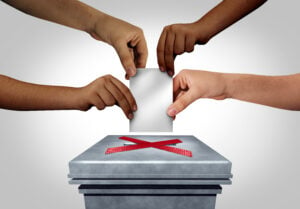There’s no question that law and technology are inextricably intertwined. As new demands and unexpected uncertainties continue to arise, the industry’s need for advanced technology continues to grow.
LexisNexis, a pioneer in the legal tech space, is meeting that need with the introduction of its comprehensive new solution, Lexis+. We recently sat down with Jeff Pfeifer, Chief Product Officer of LexisNexis, to discuss how Lexis+ is leading the industry into the future of legal technology.
Can you give us some background on why you created Lexis+?
We began engaging with clients on the concept of Lexis+ about a year and a half ago, speaking with over 2,000 of our clients about some broad ideas we had. Ultimately, those conversations led us to identify three key themes that became the reason for building Lexis+.
First, our clients wanted a better user experience in legal products. We regularly heard comments like, “I understand that we’re working in a professional product, but do legal products have to be so dull and boring?” Second, our clients wanted to see tighter integrations and connections between the products we previously offered on a stand-alone basis. The third really big idea that actually predated all of this work by five to seven years was the notion that law was, relative to some other industries, less positioned to leverage data in driving decisions.
So, as we began to iterate our product concept for Lexis+, we really sought to address each one of those major themes. We wanted to build a modern user experience that compares with any product experience in a consumer environment, while providing better integrations and data-driven insights.
Are there any specific pain points Lexis+ was designed to address?
The themes I just mentioned intersect with a longer-term trend and bigger-picture problem that all major technology suppliers are seeing – namely that the proliferation of information and data from numerous sources is at the largest point it’s ever been, and it’s growing at an increasing rate.
Traditional functions like search, which have really been at the center of how our customers have interacted with our products for a long time, increasingly have limitations. So we’re also thinking about how a user five years from now will interact with data in very different ways than they do today. Many of those ideas are in this first iteration of Lexis+.
How does Lexis+ fit into the existing Lexis universe of products?
It’s designed to be part of that universe and also introduce new benefits to the user. As an example, a user in Lexis+ might start an activity in the research section of the product and then be guided to additional insights or information in our Practical Guidance collection. Our goal for Lexis+ is for the user to think less about the individual products we offer and more about the questions they’re trying to answer or the tasks they’re trying to accomplish. Lexis+ is designed to help guide them to the best possible insights wherever they exist in the product experience.
While you might enter fairly straightforward search terms, we’ll increasingly introduce you to other content sets and even things like analytics. The underlying idea is that data-driven insights help you understand not only that you have to do something like draft a motion, but that you also have to think about whether your motion strategy is appropriate for the business situation you’re addressing.
Are there any particular features of Lexis+ you’d like to highlight?
In total, there are 12 new feature capabilities that are exclusive to the Lexis+ experience and brand new in the legal market. I’ll highlight a couple.
First, in the area of data-driven insights, there’s a feature called Brief Analysis, which allows you to upload a document and get guided recommendations of additional documents that would add valuable research and strengthen your legal arguments. What’s unique about the application in Lexis+ is the custom machine learning models we built to power the recommendation capability. It really helps users feel more confident that they have, in fact, exhausted their research – that they’ve avoided missing that proverbial needle in the haystack.
In Lexis+, we’ve also really emphasized the use of data visualization as an alternative to help users understand relationships between or among documents that they might not notice in a standard text result view. We’ve introduced data visualization capabilities throughout the product experience. We’ve enhanced Revel View, which is a data visualization that shows citing connections between documents. We’ve found that, in a standard search interaction in Lexis, users typically don’t engage past the 12th document, even though relevant results don’t stop there. But with data visualization capabilities, we regularly see users interacting with the 50th or the 60th document in the result list, and that’s driven by the visual presentation of the connections between those documents.
Another extensive use of data visualization is in a feature called Code Compare, which allows you to see how a statute or administrative code has changed over time. We illustrate visually through addition and deletion markups what’s happened as a statute has been amended over time.
Our Lexis+ Answers product is designed to allow the user to enter a fully-formed question into the search box and get a direct answer. This is an early version of what’s likely to happen with search over time – users will begin to engage with a service like Lexis+ in a more human-like way, with it eventually becoming a dialogue.
In parallel within our Practical Guidance collection, we’ve deployed a number of machine learning capabilities that allow users to mine very large data sets of contracts, find the market standards for a transaction, and review that information in a visual and summary-based way. Collectively, all these technologies help users get insights out of data in ways they never could before with traditional text-based search results.
Finally, we wanted to address the “fear of a black box” – with machine learning, users typically don’t understand what’s happening in the background. We’ve worked hard in Lexis+ to introduce some features that allow users to maintain control of the search experience. One is called Search Tree, which allows users to see visually how a search was interpreted and make modifications to that search to ensure they’re getting the results they’re looking for. The other is called Missing and Must Include. It allows users to force specific terms or ideas to be included in their results.
What can we expect to see from Lexis+ in the future?
In November, we’re releasing a companion product to Lexis+ called CaseMap Cloud, which takes one of our most popular software tools and reimagines it completely for a cloud environment, so teams can work collaboratively and add data on litigation matters. We’ve accelerated our development on that product with feedback from customers. These are ideas we’ve had for some time, but the pandemic has really emphasized the need to build tools and capabilities that allow for easier data sharing and collaborative document creation.
Why do lawyers need Lexis+?
Legal users are clamoring for experiences like those they use in their consumer life, and they’ll have that in Lexis+. Also, tools that were previously separated are now tightly integrated in a way that gives users much better guidance and recommendations about how to answer key legal questions. Finally, the world of data-driven insights is really exciting, and Lexis+ helps answer the important questions that need to be answered.
 Staci Zaretsky is a senior editor at Above the Law, where she’s worked since 2011. She’d love to hear from you, so please feel free to email her with any tips, questions, comments, or critiques. You can follow her on Twitter or connect with her on LinkedIn.
Staci Zaretsky is a senior editor at Above the Law, where she’s worked since 2011. She’d love to hear from you, so please feel free to email her with any tips, questions, comments, or critiques. You can follow her on Twitter or connect with her on LinkedIn.


 Kathryn Rubino is a Senior Editor at Above the Law, and host of
Kathryn Rubino is a Senior Editor at Above the Law, and host of 










 Jordan Rothman is a partner of
Jordan Rothman is a partner of 
